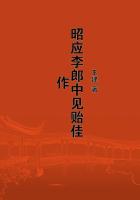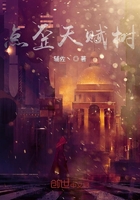In other ways, too, the character of the League had altered with events. Although Paris was still -- and at that time quite rightly --looked upon as the mother city of the revolution, one had nevertheless emerged from the state of dependence on the Paris conspirators. The spread of the League raised its self-consciousness. It was felt that roots were being struck more and more in the german working class and that these German workers were historically called upon to be the standard-bearers of the workers of the North and East of Europe. In Weitling was to be found a communist theoretician who could be boldly placed at the side of his contemporary French rivals. Finally, the experience of May 12th had taught us that for the time being there was nothing to be gained by attempts at _putsches_. And if one still continued to explain every event as a sign of the approaching storm, if one still preserved intact the old, semi-conspiratorial rules, that was mainly the fault of the old revolutionary defiance, which had already begun to collide with the sounder views that were gaining headway.
However, the social doctrine of the League, indefinite as it was, contained a very great defect, but one that had its roots in the conditions themselves. The members, in so far as they were workers at all, were almost exclusively artisans. Even in the big metropolises, the man who exploited them was usually only a small master. The exploitation of tailoring on a large scale, what is now called the manufacture of ready-made clothes, by the conversion of handicraft tailoring into a domestic industry working for a big capitalist, was at that time even in London only just ****** it appearance. On the one hand, the exploiters of these artisans was a small master; on the other hand, they all hoped ultimately to become small masters themselves. In addition, a mass of inherited guild notions still clung to the German artisan at that time. The greatest honor is due to them, in that they, who were themselves not yet full proletarians but only an appendage of the petty bourgeoisie, an appendage which was passing into the modern proletariat and which did not yet stand in direct opposition to the bourgeoisie, that is, to big capital -- in that these artisans were capable of instinctively anticipating their future development and of constituting themselves, even if not yet with full consciousness, the party of the proletariat. But it was also inevitable that their old handicraft prejudices should be a stumbling block to them at every moment, whenever it was a question of criticizing existing society in detail, that is, of investigating economic facts. And I do not believe there was a single man in the whole League at that time who had ever read a book on political economy. But that mattered little; for the time being "equality", "brotherhood" and "justice" helped them to surmount every theoretical obstacle.
Meanwhile a second, essentially different Communism was developed alongside that of the League and of Weitling. While I was in Manchester, it was tangibly brought home to me that the economic facts, which have so far played no role or only a contemptible one in the writing of history, are, at least in the modern world, a decisive historical force; that they form the basis of the origination of the present-day class antagonisms; that these class antagonisms, in the countries where they have become fully developed, thanks to large-scale industry, hence especially in England, are in their turn the basis of the formation of political parties and of party struggles, and thus of all political history. Marx had not only arrived at the same view, but had already, in the _German-French Annuals_ (1844), generalized it to the effect that, speaking generally, it is not the state which conditions and regulates the state, and, consequently, that policy and its history are to be explained from the economic relations and their development, and not vice versa. When I visited Marx in Paris in the summer of 1844, our complete agreement in all theoretical fields became evident and our joint work dates from that time. When, in the spring of 1845, we met again in Brussels, Marx had already fully developed his materialist theory of history in its main features form the above-mentioned basis and we now applied ourselves to the detailed elaboration of the newly-won mode of outlook in the most varied directions.
This discovery, which revolutionized the science of history and, as we have seen, is essentially the work of Marx -- a discovery in which Ican claim for myself only a very insignificant share -- was, however, of immediate importance for the contemporary workers' movement. Communism among the French and Germans, Chartism among the English, now no longer appeared as something accidental which could just as well not have occurred. These movements now presented themselves as a movement of the modern oppressed class, the proletariat, as the more or less developed forms of its historically necessary struggle against the ruling class, the bourgeoisie; as forms of the class struggle, but distinguished from all earlier class struggles by this one thing, that the present-day oppressed class the proletariat, cannot achieve its emancipation without at the same time emancipating society as a whole from division into classes and, therefore, from class struggles. And Communism now no longer meant the concoction, by means of the imagination, of an ideal society as perfect as possible, but insight into the nature, the conditions and the consequent general aims of the struggle wages by the proletariat.















